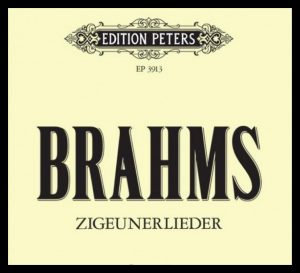 Is memorization a disappearing skill?
Is memorization a disappearing skill?
How do we memorize music? Why do we try?
MY 40-DAY BRAHMS MEMORISATION CHALLENGE
 A pianist colleague once told me what a waste of time she thought memorising music was, how concert pianists limited themselves so severely by having to memorise everything, and how much more repertoire she could get through on the harpsichord by eschewing the tradition. (And pardon me for swapping between American and English spellings of memorization/memorisation..trying to reach both audiences!)
A pianist colleague once told me what a waste of time she thought memorising music was, how concert pianists limited themselves so severely by having to memorise everything, and how much more repertoire she could get through on the harpsichord by eschewing the tradition. (And pardon me for swapping between American and English spellings of memorization/memorisation..trying to reach both audiences!)
 First, let me clarify. I’m NOT suggesting we make memorisation another rule. We have too many of those in our line of music as it is. But it should be an option: one that is encouraged, not forced.
First, let me clarify. I’m NOT suggesting we make memorisation another rule. We have too many of those in our line of music as it is. But it should be an option: one that is encouraged, not forced.
Performing a piece from memory is a totally different experience from performing it with the music in front of you. Both are valuable skills. But when a piece is memorised it certainly allows you to be more flexible in your on-stage choices and gives you the chance for greater creativity and growth. Everyone should have that experience at least some of the time.
I went to a recital at my daughter’s school the other day. Of about 40 music students I observed, only ONE student did not take her music on stage.
WHAT’S GOING ON?
 I stopped trying to memorise music when I gave birth to my daughter and used the excuse that hormones had made my brain turn to mush. Fortunately this period coincided with a lot of oratorio work and self-directed recitals, where I could choose whether to use my music or not. (Long before this, as a student, I was told off by a teacher for memorising an oratorio aria and NOT using my score! What? That’s taking the rule a little far, don’t you think? For those who aren’t familiar with oratorio performances, it’s “tradition” to read your part from a hand-held score).
I stopped trying to memorise music when I gave birth to my daughter and used the excuse that hormones had made my brain turn to mush. Fortunately this period coincided with a lot of oratorio work and self-directed recitals, where I could choose whether to use my music or not. (Long before this, as a student, I was told off by a teacher for memorising an oratorio aria and NOT using my score! What? That’s taking the rule a little far, don’t you think? For those who aren’t familiar with oratorio performances, it’s “tradition” to read your part from a hand-held score).
 Anyway, it’s been ages since I really made the effort to memorise anything. And when I saw all these young things at school using their music, I wondered if it was a symptom of something modern, and something more widespread than oxytocin and other child-rearing hormones that make things harder.
Anyway, it’s been ages since I really made the effort to memorise anything. And when I saw all these young things at school using their music, I wondered if it was a symptom of something modern, and something more widespread than oxytocin and other child-rearing hormones that make things harder.
I mentioned this to a student of mine recently, and she quoted a Tibetan monk who feared for the loss of this skill in our world. (I just googled this and found that memorisation is “a key component” of Tibetan monastic training).
THE BRAHMS CHALLENGE: CAN I DO IT?
So, I have been invited to sing some gypsy music in September (2018), and because my plate is already rather full, I decided to set myself a challenge. I’m not quite halfway through the challenge as I write this, but I am finding not only an absolute joy in memorising, but also that putting limits on an activity like this does all sorts of amazing things to your brain, your motivation, and other things.
 The challenge I set was to learn Brahms’ Gypsy Songs (Zigeuner Lieder) in 40 days, spending only 5 minutes a day doing so. That’s 200 minutes, or 3 and 1/3 hours.
The challenge I set was to learn Brahms’ Gypsy Songs (Zigeuner Lieder) in 40 days, spending only 5 minutes a day doing so. That’s 200 minutes, or 3 and 1/3 hours.
I’m not trying to solve vocal challenges in the music, or get the music into my voice and system, or anything else. Those things may or may not happen as I memorise. I’m just trying to memorise the words and music.
You can watch the various videos of each 5-minute period here (NB: this page is coming soon!). I’ll share more of my insights and revelations as I go on. Can I do it?
If I haven’t sufficiently memorised half the pieces by Day 20, I will increase my daily allowance to 7 minutes, thus making the total number of minutes 240, or 4 hours.. Stay tuned!
Join my SECRETS OF PERFORMANCE private Facebook group.
Get your copy of 3 MISTAKES CLASSICAL MUSICIANS MAKE here.


Recent Comments